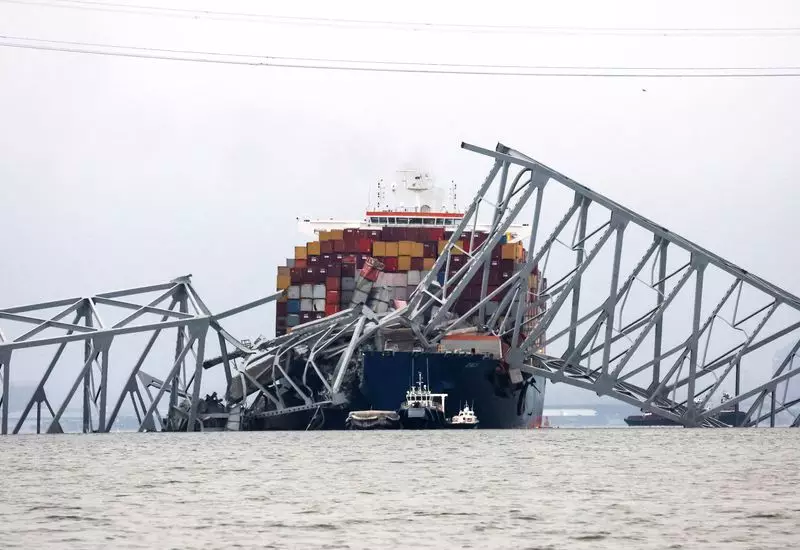Following the tragic collapse of the Francis Scott Key bridge in Baltimore’s harbor, Governor Wes Moore has called for bipartisan cooperation to approve the federal funding required for the reconstruction of the bridge. The collapse, which resulted in the death of six road workers, has not only hindered the operations of the Port of Baltimore but also left the livelihoods of 15,000 individuals in jeopardy. The Biden administration has allocated $60 million in emergency aid to assist in the cleanup efforts and reopen the port, emphasizing the importance of restoring the port’s crucial role in the national economy.
Despite President Joe Biden’s assurance that the federal government will cover the estimated $2 billion cost of rebuilding the bridge, the approval of funding remains contingent on Congress passing appropriate legislation. The divided nature of Congress, with a Republican-led House of Representatives and a Democratic-led Senate, presents a significant challenge in securing the required funds. Governor Moore has appealed to Republicans to prioritize the economic well-being of not just Baltimore but the entire nation by supporting the funding efforts.
Transportation Secretary Pete Buttigieg has expressed optimism regarding Congress’s willingness to approve the necessary funds for the cleanup and reconstruction process. He highlighted the bipartisan nature of infrastructure projects and emergency responses, citing the successful passage of Biden’s $1 trillion infrastructure package in 2021. Buttigieg’s hope is that Congress will unite in addressing the urgent needs arising from the bridge collapse and demonstrate bipartisan cooperation.
The cleanup efforts following the bridge collapse have been complex and arduous. An enormous crane has been deployed to cut up sections of the collapsed bridge for removal, marking the initial phase of what is anticipated to be a lengthy process. Hazardous weather conditions and the presence of wreckage in the water have impeded divers from continuing their search for the remaining bodies of the deceased construction workers. Governor Moore and other officials have refrained from providing a timeline for the reopening of the port and the completion of the bridge rebuilding efforts.
The aftermath of the Baltimore bridge collapse underscores the urgent need for bipartisan cooperation in securing the federal funding required to restore vital infrastructure and economic activities. As efforts continue to clean up the debris and reopen the port, it is imperative that political differences be set aside in favor of the collective well-being of the city of Baltimore and the nation as a whole. The successful reconstruction of the bridge will not only signify a physical restoration but also a testament to the power of unity and collaboration in times of crisis.

